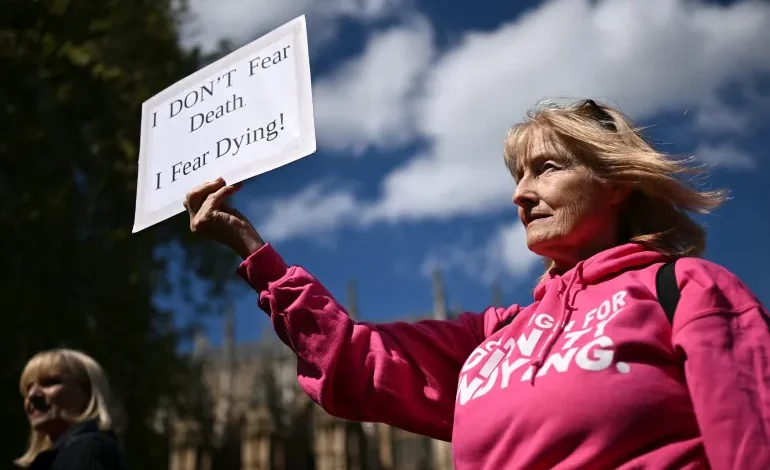UK Parliament approves assisted dying bill: How would it work?

The British parliament has narrowly voted in favour of a bill to legalise assisted dying for terminally ill people, marking a landmark moment of social reform in the country’s history.
The legislation passed by a vote of 314-291 in the House of Commons on Friday, clearing its biggest parliamentary hurdle, and will now undergo months of scrutiny in the House of Lords, Britain’s upper chamber.The process could result in further amendments when it goes to the Lords, but the upper house is usually reluctant to block legislation that has been passed by elected members of parliament in the Commons.
Friday’s vote came after many hours of emotional debate, including references to personal stories, in the chamber. It followed a vote in November that approved the legislation in principle.
Prior to that, the House of Commons voted on the issue in 2015, when it rejected legalising assisted dying.
What is in the assisted dying bill?
The “Terminally Ill Adults (End of Life)” Bill gives mentally competent, terminally ill adults in England and Wales, who have six months or less left to live, the right to choose to end their lives with medical assistance.
Patients will have to be capable of taking fatal drugs by themselves after receiving a green light from doctors and a panel including a social worker, a senior legal figure and a psychiatrist.
Assisted suicide is different from euthanasia, where a healthcare practitioner or other person administers a lethal injection at a patient’s request.Under current legislation, someone who helps a terminally ill person end their life can face a police investigation, prosecution and a prison sentence of up to 14 years.
Changes to the original draft of the new bill were made to include the appointment of independent advocates to support people with learning disabilities, autism or mental health conditions and the creation of a disability advisory board.Logistics still need to be thrashed out, including whether the practice or any services supporting it would be integrated into the National Health Service (NHS) or would operate as a separate unit made available through third parties.
The bill will not apply in Northern Ireland or Scotland, which is holding its own vote on the issue.
What are the arguments for assisted dying?
Supporters of the bill say it will ensure dignity and compassion for people with a terminal diagnosis, who must be given a choice over whether or not to relieve their suffering.
Labour MP Kim Leadbeater, who introduced the bill, told The Guardian newspaper that terminally ill people should be given rights over their bodies similar to those that allow a woman to choose an abortion.
“As much as I will fight for the rights of disabled people to be treated better by society, I will also fight for the rights of dying people,” she said.
Some advocates for the bill also argue that current legislation discriminates against the poor, who face possible prosecution for helping their loved ones die, while the wealthy can travel abroad to legally access the services.
Conservative MP Peter Bedford spoke against this perceived inequality. “At least one Brit every week is taking the stressful and often lonely journey to Switzerland for an assisted death, at the cost of £12,000 ($16,100),” he said. “This bill isn’t about shortening life, it is about shortening death.”
Labour MP Maureen Burke spoke about her brother David, who suffered from pancreatic cancer. “He could never have known that I would ever have the opportunity to stand in this place and ask colleagues to make sure that others don’t go through what he went through,” she said. “I’ve done right by my brother by speaking here today.”
Opinion polls show that a majority of United Kingdom citizens back assisted dying. Sarah Wootton, chief executive of the UK-based Dignity in Dying campaign, said the vote sent “a clear message” and that “parliament stands with the public and change is coming”.
While there is no timetable for the implementation of the bill, under the terms of the legislation, it must begin within four years of the law being passed.










